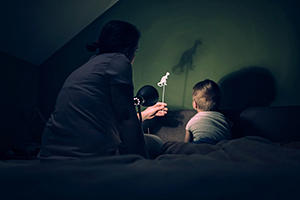From NPR: “In health care contexts, for example, people are more likely to change their lifestyles when they see a character they identify with making the same change, notes Melanie Green, a communication professor at the University at Buffalo who studies the power of narrative, including in doctor-patient communication. Anecdotes can make health advice personally important to a patient, she finds. When you hear or read about someone you identify with who has taken up meditation, for example, you might be more likely to stick with it yourself.
Stories can alter broader attitudes as well, Green says — like our views on relationships, politics or the environment. Messages that feel like commands — even good advice coming from a friend — aren’t always received well. If you feel like you’re being pushed into a corner, you’re more likely to push back. But if someone tells you a story about the time they, too, had to end a painful relationship, for example, the information will likely come across less like a lecture and more like a personal truth.”












